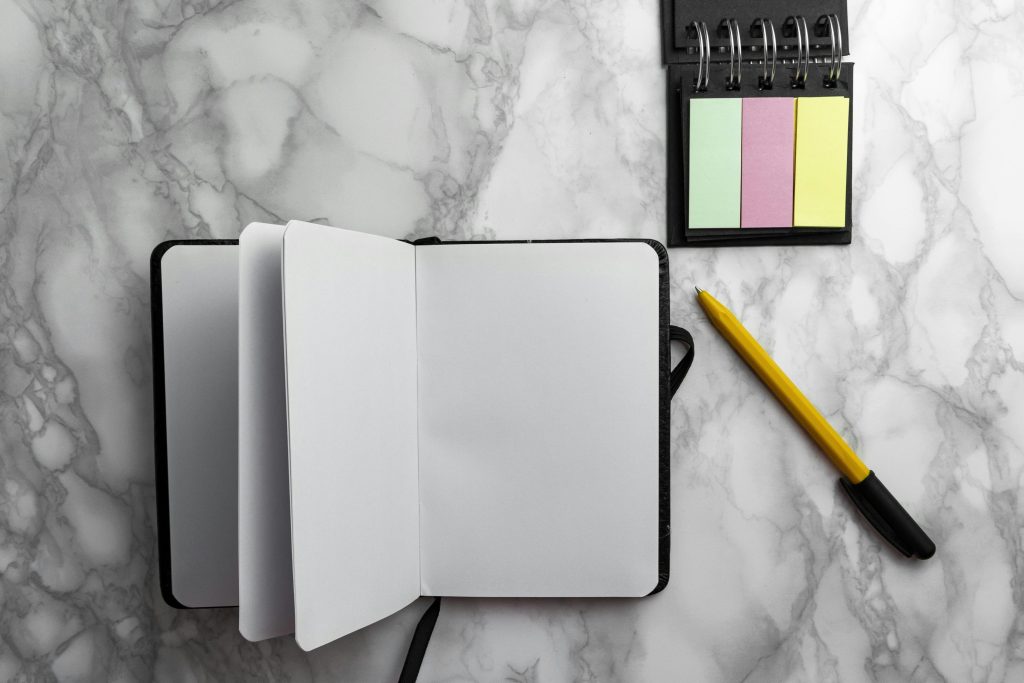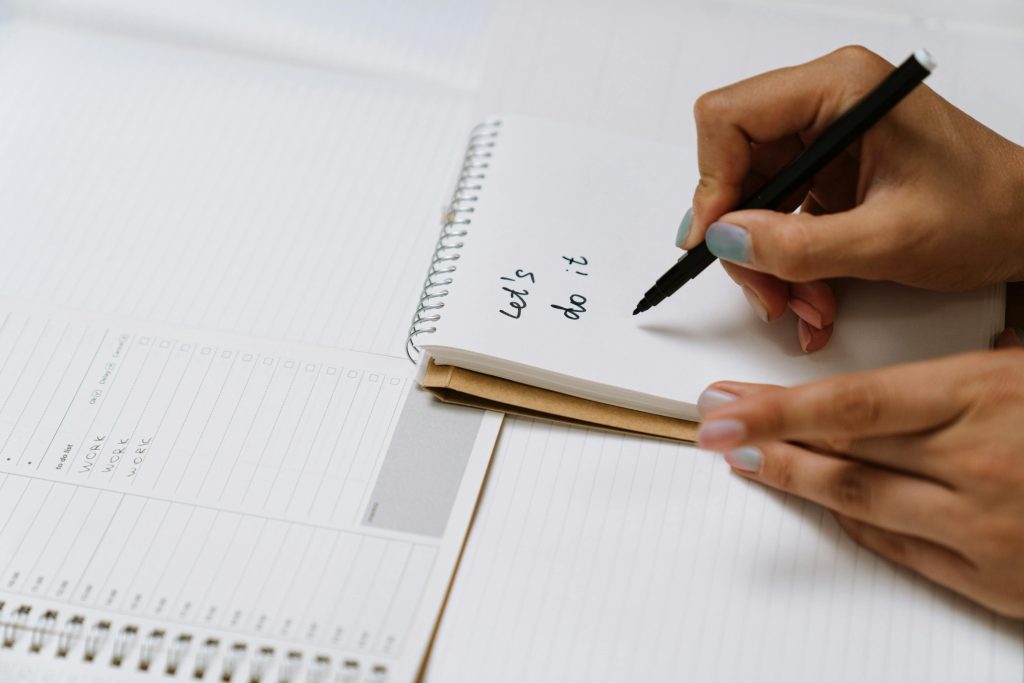You are not alone if you have ever considered beginning a diary but were unsure about how to start journalizing. The thought of writing regularly overwhelms many people, who then question what to write or how often to do it. The encouraging news Journaling need not be difficult. Actually, it may be straightforward, fun, and possibly life-changing. This beginners’ guide will enable you to start journaling with confidence, whether your goals are to organise your ideas, boost your mental health, or simply review your day.
What Is Journaling?
Regularly writing down your ideas, events, feelings, and observations is the activity known as journaling. You can arrange it the way you want, freeform or organised. While some use writing to process emotions, investigate creativity, or lower stress, others use it for goal-setting or thanksgiving.
Journaling’s appeal is that you get to create it on your own; there is no one-size-fits-all approach.
Advantages of keeping a journal.
Let’s consider the reasons journaling is worth attempting before we go into how to start:
- Writing anything down helps you filter through ideas and clear your mental clutter.
- Journaling provides a safe environment for you to express your feelings, helping to lower tension and anxiety.
- increases emotional awareness: Your behaviour and attitude start to show trends.
- Encouraging personal development by means of consistent introspection helps you to define objectives and monitor development.
- Improves inspiration, ideas, and creativity since a diary serves as your playground for them.
- Reflecting for a few minutes every day helps you to become attentive and slows down and centres your ideas.
Whether your journaling is for healing, productivity, or self-care, real-life anecdotes and research support the advantages.

Methodically: How to begin journaling?
1. Select a journaling tool.
Starting a journal does not call for a fancy notebook or app. starting with:
- An empty notebook.
- A guided notebook with ideas.
- One digital app like Day One, Notion, or Google Docs
The secret is selecting something you will really love using. Get analogue if you enjoy the feel of paper. Go digital if you would want to journal on the run or if you would rather type.
2. Choose your journaling technique.
There are several ways to journal; depending on your aim or mood, you can alternate between approaches. Among common varieties are:
- Every day, jot down three to five items for which you are thankful.
- Reflect on your day, your feelings, or most recent events in a reflective notebook.
- Outline your long-term and short-term goals and consider your development in goal-setting notebooks.
- Write without regard to syntax or organisation in a stream-of-consciousness notebook.
Experimenting will help you, as a novice, identify the look that is most natural. One can always combine and match.

3. Design a reasonable schedule.
Beginning simple and keeping consistent is one of the best journaling techniques available to novices. You are not required to daily produce a full page. Five minutes a day can make a significant difference as well.
- Choose a time of day that best suits you: morning for clarity or evening for introspection.
- Establish a basic habit trigger such as journaling before or shortly after brushing your teeth.
- If necessary, use a timer to help you avoid pressure.
- Although daily journaling is excellent, benefits can be shown even a few times a week.
4. Apply Prompts from Beginner Journals
Prompts can be useful if you find yourself looking at a blank page unsure of what to write. Here are some easy journal exercises meant for beginners:
- What today made me smile?
- Right now, for what am I thankful?
- Of what should I let go?
- This week, what three things rank highest among my priorities?
- Now, how am I feeling?
These daily journaling techniques are fantastic for creating a habit and momentum-building tool.
5. Be sincere and don’t judge.
Your journal serves as a private, judgement-free refuge. You should not give structure, grammar, or spelling any thought. Use this forum to investigate your actual emotions, disorganised ideas, and dreams.
Try not to wow anyone. Simply be really honest with yourself. The practice gains strength the more honest you are.

6. Maintain fun and personalism.
Customise your diary experience to keep inspired. There are:
- Stickers, washi tape, or doodling will help to adorn your notebook.
- Create visual appeal with coloured pens or highlighters.
- At the top of every page, pen quotes that motivate you.
- Add pictures, mood monitors, or affirmations.
Journaling should feel like a comfortable practice rather than work. Maintaining consistency is more natural the more fun it is.
Overcoming Common Journaling Challenges.
You are not alone if you stopped journaling after trying it before. Here is how to go beyond typical obstacles:
“I have no idea what I should write about.”
Use journal prompts, thank you lists, or just write about your daily events. One could start even from “I don’t feel like writing”.
“I’m not consistent.”
You do not have to keep a daily notebook. Try on weekends only or two to three times a week. Flexibility is good; yet, it’s more crucial to keep with it in a method that works for your life.
“I feel stupid penning a letter to myself.”
Usually, such emotion disappears after a few visits. Consider it as recording your development path or as communicating to your future self.
Simple Journal Entries: Illustrations
Require inspiration? Two brief examples here are:
- For instance, a three-minute gratitude diary
I appreciate today:
Morning coffee
A nice note from a buddy.
Lunch is calm period for me
- Reflective Entry: Five to ten minutes, for example
This morning, following my meeting, I was rather under pressure. I became short-tempered and saw my shoulders were tight. Writing this out helps me see I should probably have a calm pause between meetings and better sleep. Tomorrow lunch will be a stroll to help me refresh.
Final Thoughts: You Need Not Be a “Writer” to Journal
One of the most common misconceptions is that journaling belongs just to creatives or writers. That just is untrue. Anyone who wishes to feel more grounded, better understand themselves, and find a moment of peace in their daily life should journal.
Start modest. Try not to overanalyse it. Just a few minutes and an open heart will start a strong new habit helping your mental clarity, emotional well-being, and personal development.
Quick Review: Advice on Beginning Journaling
Start using any program or notebook you enjoy.
Choose a style: gratitude, introspection, freewriting, etc.?
Keep things simple and constant.
When you find yourself frozen, use diary prompts.
Make it yours: fun, confidential, and pressure-free.
Ready to start?
Tonight grab a pen and jot one sentence: “I’m starting this journal because….”
That is exactly what I mean. Now formally, you are a journaler.






